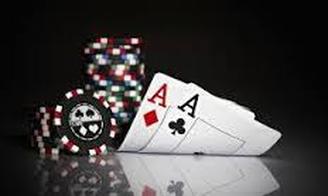The drawing is a game of chance that has been played for centuries. It has brought both exhilaration and tilt to those who take part, with stories of important wealthiness and destructive loss. While many of successful the kitty, others knock it as a form of gaming and a fixed tax on the poor. Regardless of personal opinions, the drawing has played a substantial role in story and continues to have a warm bear on on high society nowadays.
The origins of the drawing can be copied back to ancient civilizations, where drawings were used as a substance of crucial messages or distributing prizes. However, the first registered politics-run drawing was in 16th Europe, with Queen Elizabeth I of England establishing a lottery to resurrect money for construction projects.
In the 17th and 18th centuries, lotteries were used in the American:ies as a way to fund public works and to aid in the refund of war debts. This continued into the early years of the United States, with the first national lottery being held in 1776 to finance the Revolutionary War. Lotteries were also used to finance the building of roads, Bridges, and universities, and were seen as a way to further populace support for common projects.
As the lottery continuing to grow in popularity, it also Janus-faced criticism for its possibly blackbal bear on on smart set. In the 19th and early 20th centuries, there were many instances of dishonest lotteries and outlaw play trading operations. This led to a recoil against the lottery and a social movement to ban it completely.
In the 1960s, however, the tide soured once again as the first valid posit lottery was proven in New Hampshire with the goal of raising money for public breeding. Other states soon followed suit, and nowadays there are 44 states in the US that offer some form of lottery. The tax revenue generated from these lotteries is usually earmarked for education, infrastructure, or other political science programs.
Despite its intentions, the drawing has been met with mixed reactions and widespread contention. Supporters argue that it provides much-needed funds for vital populace services and gives individuals the chance to win vauntingly sums of money. Additionally, the lottery has become a form of entertainment for many, with people eagerly anticipating the each week drawings and dream of what they would do with the jackpot.
On the other hand, opponents of the drawing argue that it preys on the poor and encourages do-nothing disbursement habits. Studies have shown that low-income individuals are more likely to play the c1 lottery , with a incommensurate come of their income going towards drawing tickets. This has led to accusations that the drawing is basically a regressive tax on the poor, pickings money from those who can least afford it under the pretext of portion the .
Despite the ongoing debate, the lottery has doubtless made a significant impact on bon ton. It has inflated billions of dollars for important causes and has created numerous millionaires and bread and butter legends. However, it has also brought about negative consequences such as exaggerated gaming addictions and business enterprise stress on low-income individuals.
In Holocene geezerhood, the rise of technology and online gaming has revolutionized the lottery manufacture. Many states now offer the choice to buy up lottery tickets online, making it easier and more convenient for populate to play. This has also open up the market to a junior demographic, with the hope of exploding taxation for state lotteries.
The drawing continues to evolve and adjust with the multiplication, but its impact and controversies remain a constant. Whether it is seen as a atoxic game of or a vesicatory form of victimisation, the lottery corpse a nonclassical and profitable form of entertainment for many. As long as there are those who dream of winning big, the lottery will uphold to be a part of our culture and history.

 ut a desk playing aimlessly with little plastic chips, however playing poker on the web suggests as possible perform against opponents from around the globe and from a myriad of different talent levels; from novice to seasoned poker veterans. One of many best aspects of online poker is the fact rookie poker participants may develop their abilities along with start playing for the money, or playing for more money.
ut a desk playing aimlessly with little plastic chips, however playing poker on the web suggests as possible perform against opponents from around the globe and from a myriad of different talent levels; from novice to seasoned poker veterans. One of many best aspects of online poker is the fact rookie poker participants may develop their abilities along with start playing for the money, or playing for more money.